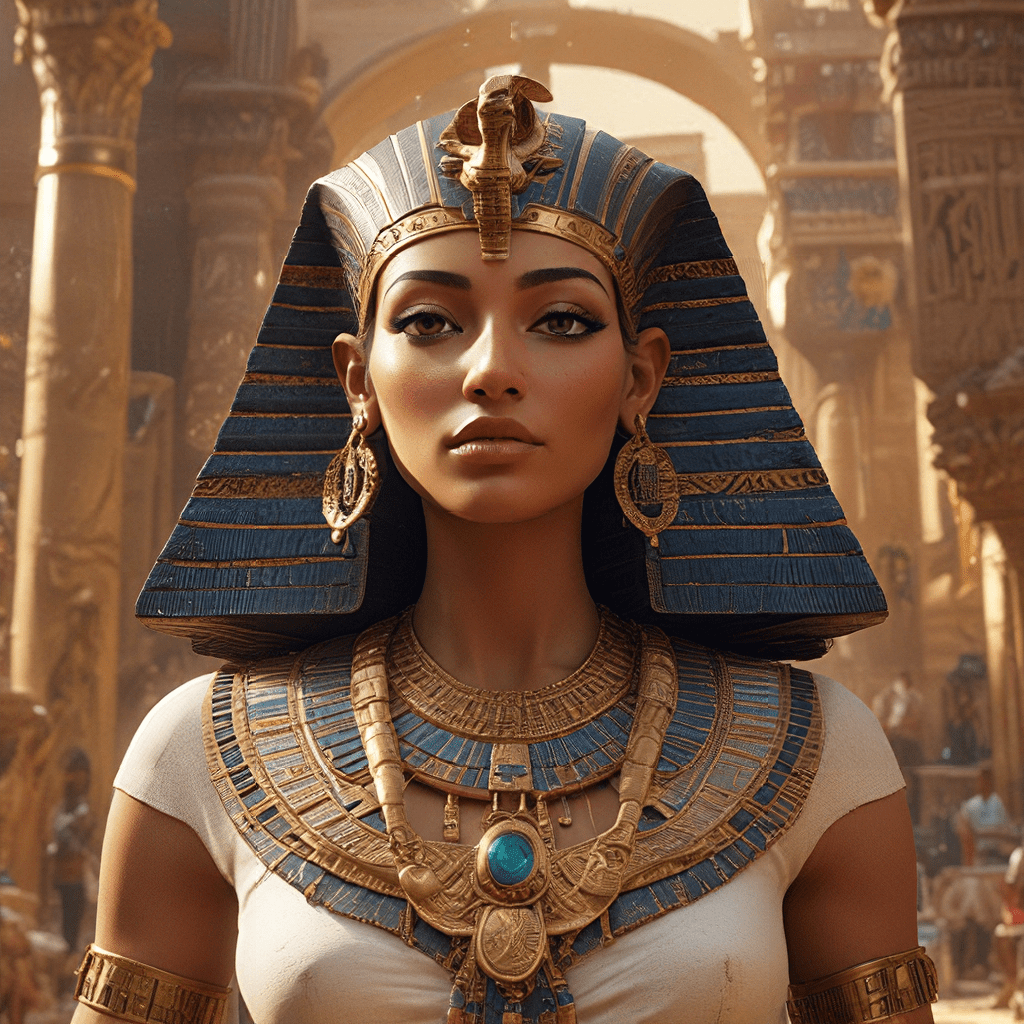Exploring the Egyptian Creation Myth: A Cultural Perspective
1. Introduction: The Enduring Power of Creation Myths
Creation myths, stories that explain the origin of the universe and humanity, are found in nearly every culture across the globe. These tales are not just fascinating narratives; they offer profound insights into a society’s beliefs, values, and worldview. They serve as a foundation for understanding the world around us and our place within it. The Egyptian creation myth, a rich tapestry woven from ancient beliefs and practices, holds a unique position in the history of mythology. It provides a window into the ancient Egyptian mind, revealing their profound reverence for the natural world, their complex understanding of the divine, and their deep connection to the cyclical nature of life and death.
2. The Cosmic Egg: A Universal Symbol of Beginnings
Across cultures, the image of a cosmic egg as the birthplace of the universe is a recurring motif in creation myths. From the ancient Chinese myth of Pangu emerging from a cosmic egg to the Hindu tale of Brahma being born from a golden egg, this symbolic representation of beginnings speaks to the universal human fascination with the origins of existence. The Egyptians, too, embraced this motif in their creation myth, although they gave it a unique interpretation. In their story, the cosmic egg, representing the potential for existence itself, is not simply a passive vessel but a dynamic entity imbued with divine power.
3. Atum, the Self-Created God: A Divine Spark in the Void
In the Egyptian creation myth, the cosmos begins with a primordial state of nothingness, represented by the vast expanse of water called Nun. From this watery abyss emerges Atum, the self-created god, a being whose very existence defies the limitations of conventional creation. Atum, often depicted as a sun god, embodies the very essence of creation, emerging from nothingness to bring order and structure to the chaotic void. The concept of self-creation is central to Atum’s role in the Egyptian myth, highlighting the divine power that exists independent of any external force. Atum is not born from another being; he is the source, the foundation, the ultimate origin.
4. The Emergence of Order from Chaos: The Creation of the World
The act of creation in the Egyptian myth is not a sudden event but a gradual process, a dance between primordial chaos and divine order. Atum, the self-created god, begins to shape the universe from the watery depths of Nun. Through a series of pronouncements and acts of will, Atum brings forth the sky, represented by Nut, and the earth, represented by Geb. The Nile River, the lifeblood of ancient Egypt, is also born from Atum’s creative force, symbolizing the vital force that sustains life. The creation of the world reflects the Egyptians’ deep understanding of the interconnectedness of all things, emphasizing the importance of balance and order in the universe.
5. The Divine Ennead: Expanding the Pantheon
The Egyptian creation myth goes beyond the initial act of creation, delving into the emergence of a complex pantheon of gods who govern various aspects of life. From Atum, the first god, emerges the divine Ennead, a group of nine deities who represent the fundamental forces of the universe. Shu, the god of air, and Tefnut, the goddess of moisture, are born from Atum’s breath and saliva, symbolizing the essential elements for life. Geb and Nut, the earth god and sky goddess, are born from Shu and Tefnut, representing the union of the earthly and celestial realms. And finally, Osiris, the god of the underworld and rebirth, emerges from the union of Geb and Nut, signifying the cyclical nature of life and death. The interconnectedness of the Ennead members reflects the Egyptians’ belief in the interconnectedness of the cosmos, emphasizing the delicate balance that governs the world.
6. The Creation of Humanity: A Divine Spark in Mortal Form
The Egyptian creation myth does not stop at the creation of the world but extends to include the creation of humanity. According to the myth, human beings are not mere products of chance but are created in the image of the gods, bearing a divine spark within them. This concept of a divine origin for humanity reinforces the profound connection between the mortal and the divine in the Egyptian worldview. Humans, according to the myth, are not simply creatures of the earth but are imbued with a spiritual essence, reflecting the divine order of the cosmos.




